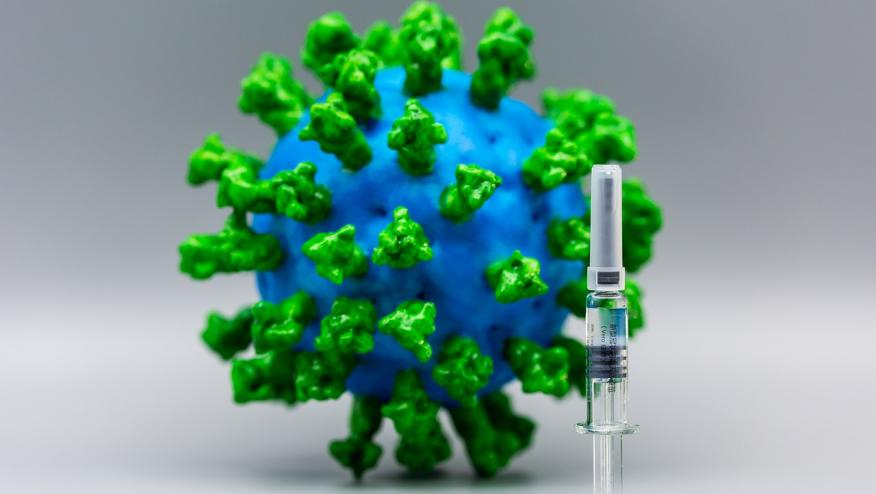Update on Safety, Effectiveness of SARS-CoV-2 vaccines in SLE Save

It is almost a year since the Pfizer-BioNTech SARS-CoV-2 vaccine has been made available by the FDA under emergency use authorization (EUA). The question still being asked is whether the vaccine is safe for people with lupus?
It is worth noting that the Phase III randomised controlled trials of all three FDA approved vaccines excluded patients on immunosuppressants within 6 months of enrolment. Therefore, data pertaining to safety and effectiveness of SARS-CoV-2 vaccines in rare diseases such as SLE are welcomed with interest.
In the ACR21 Convergence Conference, Felten et al. (Abstr#1421) reported a large-scale study (VACOLUP) of tolerability of SARS-CoV-2 vaccines in patients with SLE. This was a cross-sectional study using a web-based survey, administered to 696 people with SLE from 29 countries. 316 (45.4%) and 181 (52.8%) patients reported a side effect after the first and second dose of vaccine respectively. Of these, over 80% of the side effects were deemed minor or moderate intensity (i.e. without disrupting the ability to do daily tasks). No difference in side effect rate was observed between mRNA vs non mRNA vaccines. In terms of disease flare post-vaccination, 21/696 (3%) patients reported a flare; predominantly musculoskeletal symptoms in 19 (90%) patients and fatigue in 18 (86%) patients, after a median (IQR) of 3 (0-29) days. These flares led to a change in SLE treatment in 15 (71%) of 21 cases and only 5 patients required admission to hospital.
Izmirly et al. (Abstr#1420) conducted a prospective cohort study to evaluate sero-reactivity and disease flares after SARS-CoV-2 vaccination in 90 patients and 20 healthy controls. The mean titres of post-vaccine antibody levels were lower in SLE patients compared to controls; specifically 26 (29%) patients had IgG antibody responses to the SARS-CoV-2 Spike receptor-binding domain (RBD) that fell below that of the lowest response observed in healthy controls. In multivariable analysis, concomitant antimalarials or no medications (OR 11.8 (95% CI 2.9-48.5), and elevated anti-dsDNA prior to vaccination [7.8 (2.9-48.5)] were associated with increased odds of vaccine response in SLE. There was no difference in SLEDAI score between pre- and post-vaccination. 11% of the patients were deemed to have post-vaccination disease flares of which only 1% was classified as severe.
Can the patients contract a SARS-CoV-2 infection despite being vaccinated? Singh J et al. (Abstr#L16) conducted a retrospective cohort analysis in 47,303 patients with autoimmune or inflammatory rheumatic disease (AIRD) and 536,954 healthy controls using a U.S. Nationally-sampled Electronic Medical Record Data Repository. The main outcome was breakthrough SARS-CoV-2 infections occurring ≥14 days after a full or partial vaccination. The results showed higher prevalence of breakthrough infections/1,000 persons in patients with AIRD vs controls (based on vaccine type) as follows: (a) Pfizer: 36 vs 19; (b) Moderna: 33 vs 6; and (c) Janssen: 47 vs 26 respectively. In those fully vaccinated, compared to controls, the adjusted odds of breakthrough infections were increased significantly for RA (OR: 1.54 (95% CI 1.40-1.69), SpA (1.17 (1.06-1.29), SLE (1.86 (1.58-2.18), SSc (1.72 (1.27-2.29) and Polymyositis (2.3 (1.44-3.46), but not for gout, PMR, or rheumatoid lung. However, data pertaining severity of these infections were not available.
So what do these results tell us?
First, administration of SARS-CoV-2 vaccination appears to be well-tolerated in patients with SLE, with minimal risk of flare. Second, patients with SLE appear to have lower rate of sero-reactivity to SARS-CoV-2 vaccination compared to healthy adults and this is largely attributed to concomitant immunosuppressant. This finding lends support to the recommendation by the Centres for Disease Control and Prevention (CDC) for people who are moderately or severely immunocompromised to be offered a third primary dose of the Pfizer-BioNTech or Moderna mRNA vaccine. Moreover, the ACR has recently published a clinical guidance including timing of the third dose in relation to concomitant immunomodulatory drugs.
Finally, despite vaccination, breakthrough SARS-CoV-2 infection can occur although the extent of severity of the infection remains unknown. Therefore, patients with SLE should be advised to continue to follow all public health guidelines regarding physical distancing and other preventive measures following vaccination. Overall, these initial data provide some reassurance when counselling our patients and subsequently would help increase the vaccine uptake.










If you are a health practitioner, you may Login/Register to comment.
Due to the nature of these comment forums, only health practitioners are allowed to comment at this time.